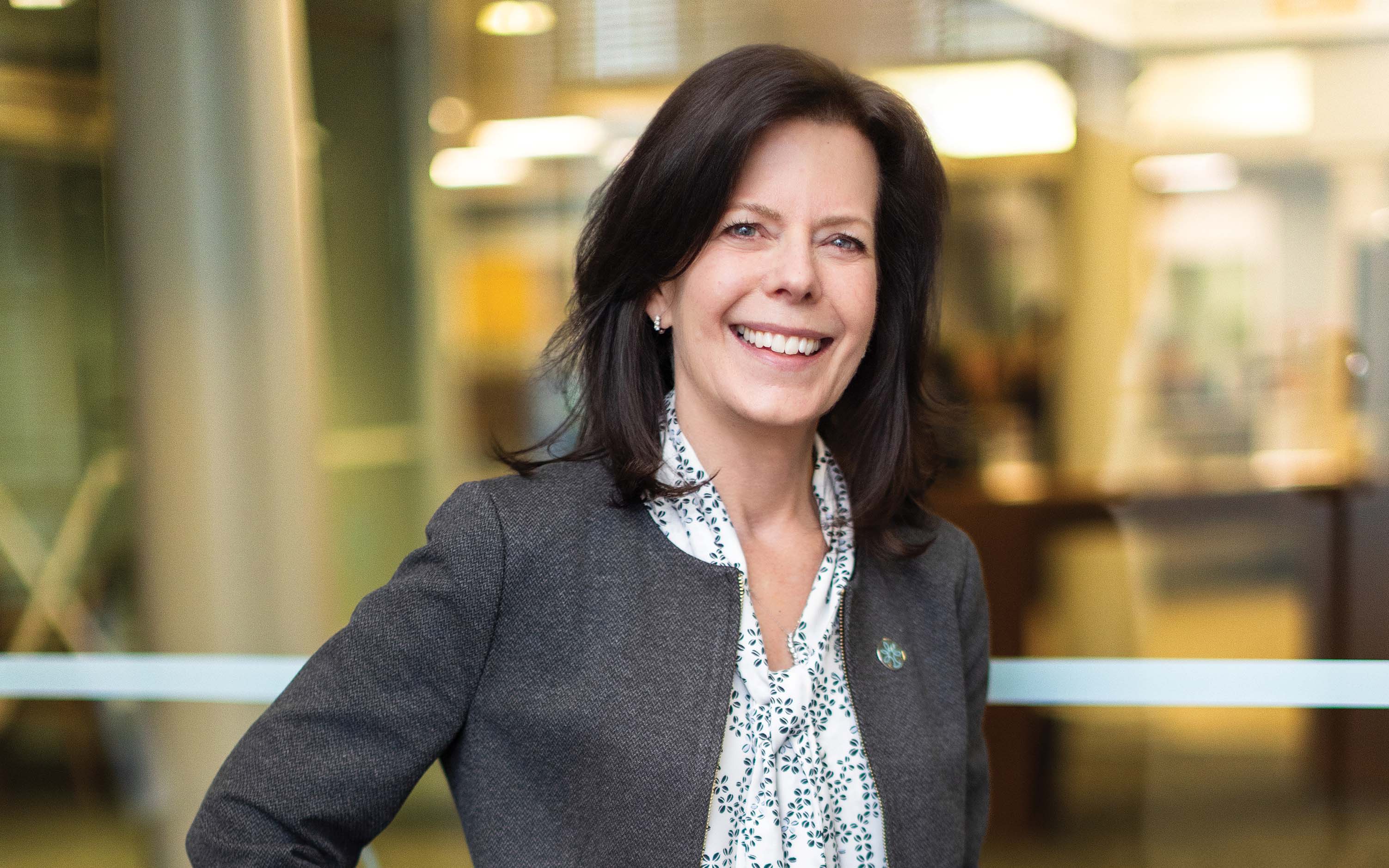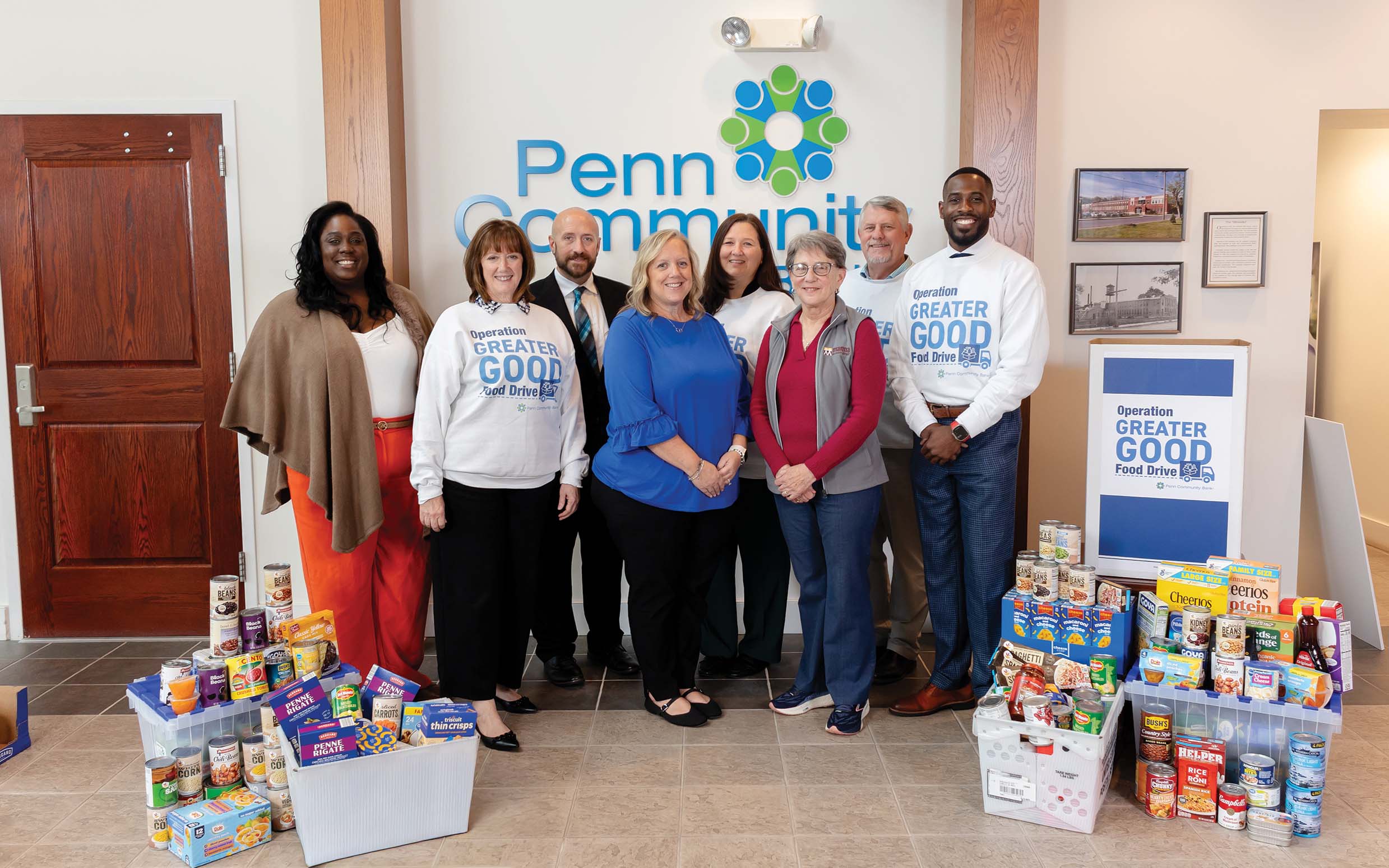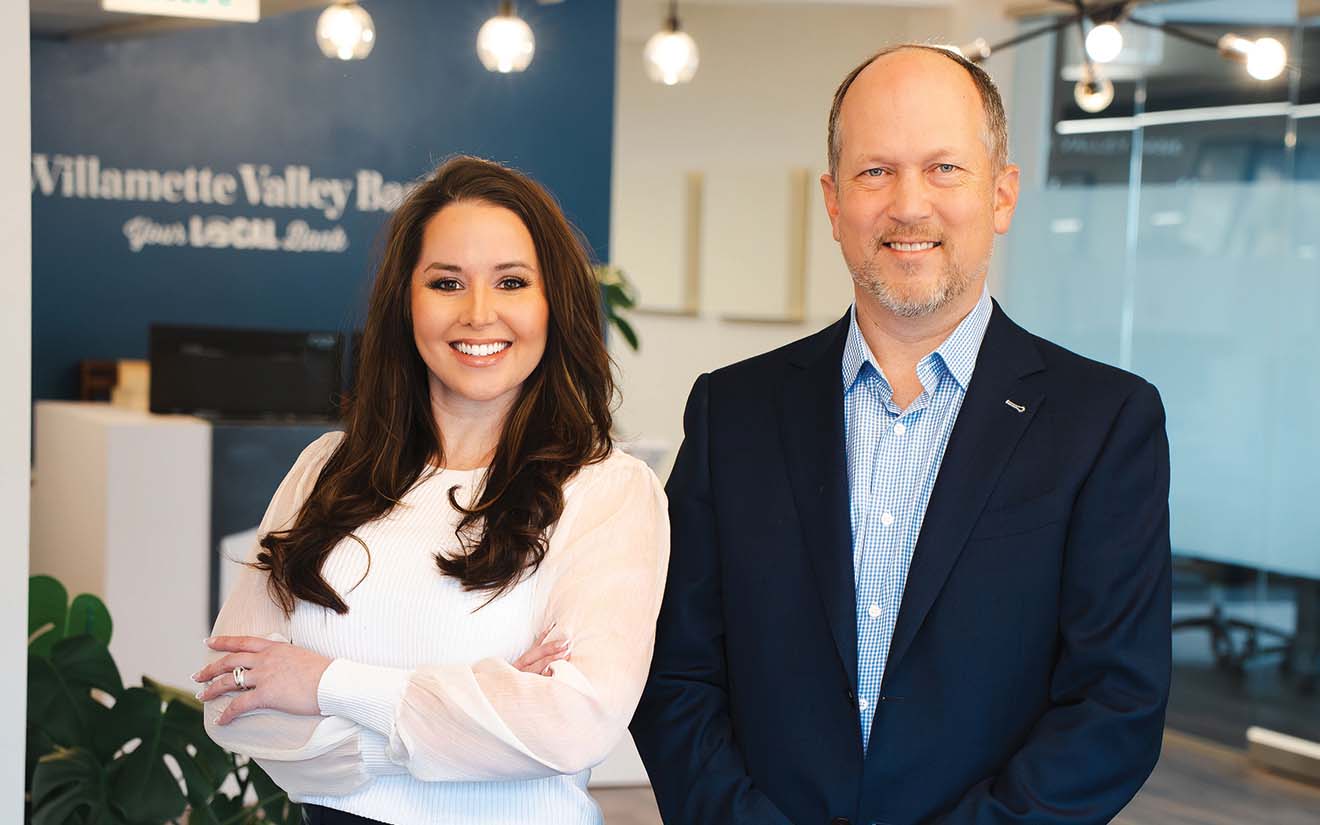In the wake of the wildfires that devastated areas of southern California, community banks stepped up to help locals recover and rebuild. Community bankers in the area tell us how they addressed and eased the tragedy for employees, customers and neighbors alike.
Community Banks Step Up After California Wildfire Devastation
0725 Cali Poppy 2k
July 01, 2025 / By Judith Sears
In the wake of the wildfires that devastated areas of southern California, community banks stepped up to help locals recover and rebuild. Community bankers in the area tell us how they addressed and eased the tragedy for employees, customers and neighbors alike.
On Jan. 7, 2025, wildfires ignited in the Pacific Palisades neighborhood of Los Angeles, as well as in nearby Altadena and Pasadena, California. Fueled by drought conditions and high Santa Ana winds, fires swept through the Los Angeles metropolitan area and San Diego County throughout January. They were not fully contained until Jan. 31. News of the emergency spread quickly, and community banks rushed to respond.
“By the time the fire hit the Palisades, we were on a call with marketing to talk about what we could do to help,” says Mark Beausoleil, head of retail banking for $62 billion-asset Valley National Bank, which is headquartered in Morristown, New Jersey, but has offices across the country.
Beausoleil, who was in his East Coast office, spoke to Meline Kalendjian, first vice president and market manager III, as she drove past fires on her way to Valley’s Beverly Hills location. Kalendjian described the damage she saw, such as a neighbor holding a door—the only remaining remnant of their home.
“It makes you realize, no matter where you are geographically, you’ve got to lead and hold hands and hearts,” Beausoleil says.
Empathy amid disaster
Valley National Bank immediately formed a working group to organize the community bank’s response. “We had outreach from all leaders of departments to make safety and wellness checks of our team [and clients],” explains Kaitlyn Schillizzi, senior vice president of corporate social responsibility.
Michael Davie, vice president and association service advisor for Valley, had to temporarily evacuate his condo in Hollywood on Jan. 8. “The bank was fantastic post-evacuation,” Davie says. “I got multiple emails, text messages and calls asking if I was OK, if I needed anything.”
Other community banks also leapt into action. Mission Valley Bank in Sun Valley, California, implemented immediate wellness checks. “We plotted where the fires were reported and reached out first to those most immediately threatened,” says Tamara Gurney, president and CEO of the $700 million-asset community bank.
OneUnited Bank, which is headquartered in Boston but has locations in LA, had both employees and customers in affected areas. “We stayed in touch with everyone throughout the experience,” reports Teri Williams, president and owner of $700 million-asset OneUnited. “It was a combination of wellness checks, texts and emails.”
As the fires made national headlines, OneUnited’s associates from all geographic regions responded. Early on, its executives noticed that a thread on the community bank’s Slack messenger channel was bubbling with concern and a desire to help.
“Employees were sharing what’s going on with the community,” Williams says, “and organically, everyone wanted to figure out how they could help.”
Valley National Bank saw a similar response. “California is our newest location,” explains Beausoleil. “We had associates calling from all over, from New Jersey and Alabama, asking, ‘How’s our new team in California doing?’ We had a lot of support from the other branches outside of California.”
More than bankers
The wildfires inflicted panic, uncertainty and loss on many Angelenos. “You’re not only managing a business; you’re deeply intertwined in the lives of your customers, your team and the broader community,” says Meline Kalendjian, first vice president and market manager III for Valley National Bank.
Kalendjian, who works at Valley’s Beverly Hills office, had clients who lost their homes in the fires. One such customer lost a home they had been building “from scratch.”
“They had decorated and were ready to move in, but the fires happened just two weeks before the moving date,” Kalendjian says.
The family was devastated. Kalendjian made it a point to check up on them at least twice a day for several days. “I listened to their frustrations and provided emotional support,” she says. “I also found information on how they could utilize services from FEMA, local shelters and other forms of help. I delivered bottles of water and food to ensure they kept their strength up during this difficult time.”
It was an intense, emotionally charged period. “At these times, you become more than a banker,” Kalendjian says. “You’re a counselor, problem solver and an anchor in chaos.”
Answering the call
Local community bankers found that their associates in other regions provided hands-on banking help, taking up the slack while they dealt with the emergency. “We had support from our East Coast team with client services, which allowed us to be flexible and ensure everyone was taken care of despite the challenging circumstances,” Kalendjian says.
Concern for customers was at the top of community bankers’ lists. “We asked all relationship managers to contact their client list,” Gurney explains. “I know that people were thankful we were thinking of them.”
The California Community Banking Network (CCBN), an ICBA-affiliated state association, saw the need for a central location for accurate information. “We compiled on our website a list of evacuation orders, food banks and agencies that people could refer to,” says Caroline Johnson, director of communications and member services for CCBN.
On a webpage dedicated to the wildfires, CCBN provided links to immediate resources, recovery efforts and ways to help through volunteering or donations. CCBN also posted OCC and FDIC links for guidance on closures. “We made sure that bankers were able to come to us for resources and regular updates,” Johnson says.
Mission Valley Bank partnered with the Valley Economic Alliance, a nonprofit focused on economic and workforce development, to publicize aid resources. “Valley Economic Alliance set up call-in numbers and website links directing to resources such as housing and clothing,” Gurney explains. “We joined up with them to make sure the word got out.”
Offering extra assistance
Disruptions were unavoidable, but community banks worked to support displaced employees. Anna Tom, Valley Bank’s senior vice president of corporate banking, was evacuated from her home for several days.
“Everybody was in shock initially,” she says. “The priority was to find a place to live. A lot of people lost homes.” Tom was able to stay with friends but notes that Valley Bank offered housing stipends to employees to help with expenses.
In a few cases, local branches had to close temporarily. Valley’s Los Angeles branch closed for three days due to poor air quality and mandatory evacuations. “The safety of our employees and clients was our top priority,” Kalendjian says. Valley had also planned a January grand opening of its Beverly Hills branch but rescheduled that celebration for April.
Even amid such closures, community banks took measures to offer special terms for customers who had been affected by the emergency. Mission Valley granted loan deferrals if clients requested them. Other measures banks took include paying overdraft fees and waiving other fees for customers in affected areas. Valley Bank offered a three-month forbearance of principal to customers and an additional three-month forbearance if the property was destroyed.
Community banks in the area quickly began organizing donations and contributions. CCBN’s Johnson was personally involved in collecting hygiene kits and clothing for the donation centers in Pasadena. She notes that there was an abundance of volunteers and support.
“That was the awesome part of it,” she says. “There was such an outpouring of the community and the banks. It showed how everyone banded together to just respond to the disaster and turmoil. Everyone wanted to play their part.”
At Mission Valley, Meeta Autrey, vice president and IT manager, got in touch with colleagues in the Los Angeles chapter of the Project Management Institute and organized a supply and donation drive. With Mission Valley’s Burbank location as a drop-off point, Autrey was able to collect supplies that filled three small trucks. Gurney is proud of Autrey’s initiative. “She spearheaded the whole thing,” she says.
The bank also created a workplace giving campaign on its donation matching platform where associates could support local organizations, wildlife recovery and relief efforts. “We made sure we connected with nonprofit partners, such as the Red Cross and regional foodbanks, to get funds to the boots on the ground,” Schillizzi says.
OneUnited contributed to community organizations such as African American Real Estate Professionals, Altadena Rebuild Coalition and Special Needs Network LA, which collected donations to support those with disabilities affected by the Eaton Fire.
Such efforts truly made a difference as the emotional toll mounted in the wake of the fires’ unpredictability and ensuing destruction and dislocation. Beausoleil notes the valuable role that Valley’s employee wellness programs have played. “We can see the financial toll, but I think we often underestimate the importance of helping employees talk things through,” he says. “There were some real concerns, and any associate that needed more assistance had access to our [employee assistance] programs.”
Community bankers report that the fires and their aftermath, though wrenching, created a deeper bond among bank teams. “It’s great to have the support of the team,” says Michael Davie, who experienced the uncertainty of temporary evacuation. “Valley has their ‘Valley Cares’ slogan, and it’s a real thing. It’s not just a call they had to make; it’s a call they wanted to make. It makes you feel like you’re family, not just an employee.”
A community united
OneUnited’s Williams believes that the wildfire experiences enhanced a team feeling and identity that had started during the COVID pandemic.
“There used to be sort of a wall, that ‘I’m an employer, you’re an employee,’” she says. “Now we’re like family. This was another example of that family feeling kicking in.”
As a result of widespread employee concern, OneUnited created the OneUnited Bank Employee Disaster Relief Fund.
“The length of time this went on created greater awareness,” Williams says. “Everyone was concerned about fellow employees and our customers. People just started saying, ‘We’ve got to do something.’ We thought we should structure this.”
The fund allows employees to donate money for coworkers who are financially affected by disasters in California, Florida and Massachusetts, where the bank has locations. OneUnited matches employee donations dollar for dollar.
While the fires’ immediate danger has passed, everyone realizes that rebuilding and determining the “new normal” will be a long process. “Some of the people I’ve spoken with [still haven’t had] the waste and hazardous material removed from their lots,” Johnson says. “Normalcy is just starting to happen for many. Rebuilding and long-term goals will take three or four years.”
ICBA Foundation Disaster Relief Program coordinates support
When news of the LA wildfires broke, Aaron Stetter, EVP of affiliate and volunteer relations for ICBA, reached out to the California Community Banking Network (CCBN), an ICBA state affiliate, to remind them of the ICBA Foundation’s Disaster Relief Program.
John Lingvall, president and CEO of CCBN, formally requested support, and the foundation began raising money. “The contributions came from all over,” Stetter says.
The Disaster Relief Program ultimately contributed $68,000 to emergency relief for the wildfires, of which ICBA donated $10,000. The funds were donated to the United Way of Greater Los Angeles.
“We coordinated with CCBN to identify the best local agency,” Stetter explains. “We rely on affiliated state groups as the eyes and ears on the ground. We want to help the local organizations that are doing good work in their area.”
Since the ICBA Foundation was established in 2021, the platform has raised and distributed $544,355, of which ICBA has contributed $113,672.
Funds have been raised for five emergencies across the U.S., including Hurricane Ian (Florida), the Rolling Fork-Silver City Tornado (Mississippi), Maui Wildfires (Hawaii), Hurricanes Helen and Milton (Florida, Georgia, North Carolina, South Carolina and Virginia) and the California wildfires.
Subscribe now
Sign up for the Independent Banker newsletter to receive twice-monthly emails about new issues and must-read content you might have missed.
Sponsored Content
Featured Webinars
Join ICBA Community
Interested in discussing this and other topics? Network with and learn from your peers with the app designed for community bankers.
Subscribe Today
Sign up for Independent Banker eNews to receive twice-monthly emails that alert you when a new issue drops and highlight must-read content you might have missed.
News Watch Today

Join the Conversation with ICBA Community
ICBA Community is an online platform led by community bankers to foster connections, collaborations, and discussions on industry news, best practices, and regulations, while promoting networking, mentorship, and member feedback to guide future initiatives.













